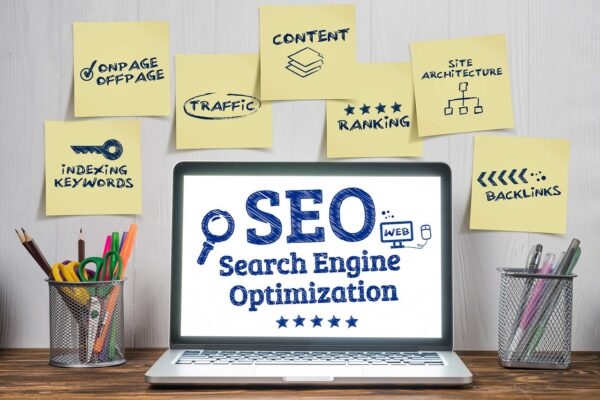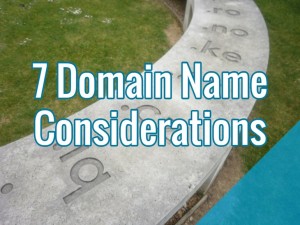Are you looking to find the perfect digital marketing strategy for your business? Search marketing can work well for you to raise brand awareness, boost website traffic, and increase your revenue. However, to run your campaign well, you must familiarize yourself with the most popular search marketing strategies, SEO and SEM.

DiggityMarketing / Pixabay
Marketing professionals often use the terms SEM and SEO interchangeably. However, these strategies are different, and you need to know their differences to manage your search marketing campaign better.
This post will discuss the similarities and differences between SEO and SEM. But before tackling them, let us first familiarize ourselves with these terms.
What is Search Engine Optimization?
Google Knowledge Graph defines search engine optimization (SEO) as the process of optimizing the traffic to a website by making it appear on the first page of the results list of a search engine called search engine results pages(SERP) during a search query. SEO is part of SEM.
Brands employ organic methods to rank high in SERPs in an SEO campaign. You can use several SEO strategies to increase your visibility to search engines like Google during their searches. Experts usually group these SEO techniques and tricks into three categories, namely:
-
Technical SEO
– Technical SEO involves the strategies to improve the technical aspects of your website to optimize its foundation and backend structure. Among the website aspects tackled by these procedures are mobile-friendliness, page speed, crawlability, indexing, structured data, security, and site architecture. This category aims to improve both the user and search engine experience.
-
On-page SEO
– On-page SEO includes all activities you do to improve your website’s researchability. Among the strategies in this category are HTML source code optimization, content creation, strategic keyword choice and placement, heading optimization, title tags, and meta descriptions. Implementing an excellent on-page SEO strategy will result in better visibility with search engines and higher SERP rankings.
-
Off-page SEO
– Off-page SEO includes activities to build your website’s reputation to the search engines. The main strategies include link building to authority sites and managing directory profiles and local listings. Other off-page activities you can do to boost your website include influencer outreach, guest blogging, brand mentions, social networking, and broken link building. If you have reputable website connections, the search engines will consider your site dependable and trustworthy and favor you during their search.
What is Search Engine Marketing?
Wikipedia defines search engine marketing (SEM) as a digital marketing strategy that uses paid and unpaid advertising and optimization techniques to promote a website and boost its visibility in SERPs. Aside from SEO, the other SEM strategies are:
-
Display advertising
– These are image, video, or text-based advertisements aimed at convincing users in digital platforms like social media and websites to make a specific action.
-
Remarketing
– This strategy involves posting or showing ads to users who previously used your app or visited your website to boost brand awareness or sell a product or service.
-
Shopping/product advertising
– This is a campaign to establish and maintain product awareness with prospective customers.
-
Pay-per-click (PPC)
– Under this SEM strategy, you will pay a certain amount to websites or search engines like Google when your ads get a click.
Similarities between SEM and SEO
As search marketing strategies, SEO and SEM have similarities as they both aim to increase your brand’s ranking on SERPs. Among their similar features are:
- They both are intended to increase your website visitors by making your brand appear high in SERPs. Users are more likely to click on the top-half results of the SERP’s first page.
- They both require you to know your target audience’s behavior, wants, and needs to become effective. By learning your audience’s personality, you can develop effective content to convince them that your products or services will resolve their needs and wants.
- They both use keywords to bolster your website’s visibility to the search engines. To find the most effective keywords in your campaigns, you may use tools like UberSuggest and the Alexa Keyword Difficulty.
Differences Between SEM and SEO as Digital Marketing Strategies
Although they are often used interchangeably and believed to be the same, SEO and SEM have major differences. You can elect to use both these strategies in your digital marketing efforts to get immediate tangible results, and you have the money to spend. However, if you need only to choose one, here are their different features to help you decide:
-
Cost
– One of the primary differences between SEO and SEM is that SEO is an organic approach, meaning it will naturally attract traffic to your website over time. SEM is a paid scheme wherein you will pay each time a user clicks your ads. Cost-wise, SEO is a better approach.
However, your choice will depend on several factors, like your budget, business goals, and your business experience. If you are a startup and want to gain immediate impact, SEM would work well if you are prepared to spend. SEO will help you expand your business with minimal cost and high returns if you have several years in the business.
-
Search results
– Paid strategies like SEM could produce an immediate impact on your SERP and web traffic. You can specifically target a group of users with your ads. SEO, meanwhile, takes time before it can produce tangible results. Also, you need to produce quality content to build brand awareness, establish a relationship with your market, and build their loyalty.
Furthermore, SEM is an excellent strategy for testing. If you are new in business or the advertising arena, you can use SEM to get immediate results for your campaigns and change strategies if the results are dismal. SEO, meanwhile, is ideal for those who want a gradual but steady growth of their business.
-
ROI
– When it comes to return on investment (ROI), SEO could have the advantage as your costs are minimal. In SEM, you need to invest money to get results. However, if you are a risk-taker, spending some for higher returns will work well for you.
A solid SEO strategy will bolster your web traffic significantly in the long term. If you have already established your SERP ranking, you only need to post regular content or update your existing ones to get results. Meanwhile, in SEM, you need constant monitoring to determine how your ads perform. Your losses could also be significant if you don’t do SEM correctly.
Factors to Consider When Deciding Whether to Use SEO or SEM in Your Campaign
With a better understanding of SEM and SEO, you are now ready to choose better for your search marketing. But wait, don’t get too excited. Consider these factors in your decision making:
-
Determine your business standing
– Your choice partly depends on how long you have been doing business in your market. If you are a startup and your website is newly launched, it may take several months or years to develop your SEO and start to appear in organic search. Therefore, your best strategy is to launch an SEM campaign while planning for your SEO. This way, you will get immediate traffic. You can also leverage your SEM when advancing your SEO plan.
-
Assess your industry
– Your knowledge about your sector will also be a factor in your choice. If you have been actively doing business for several years and have a good idea of your customers’ needs and wants, an SEO strategy is an excellent way to grow your brand organically.
However, if your experience is limited and unsure of how your competition or market will respond to your content, SEM is a great way to experiment and test what works best in your industry. To know more about your market and business standing, you may research these sites.
-
Examine your competition
– To decide your strategy to compete against your rivals, investigate their approach and the performance of their marketing campaign. Look at their organic keyword and paid strategy and devise ways to outperform them. In your analysis, look for weaknesses in their campaigns that you can exploit.
There are several tools you can use to examine the keyword strategy of your rivals. You may utilize Alexa’s Competitor Keyword Matrix or SEMrush to do your research. Through these tools, you can get a glimpse of your rivals’ top organic and paid keywords attracting web traffic to their pages.
-
Know the average cost-per-click in your market
– Driving traffic to your website and completing a sale is your primary goal in your marketing campaign. SEM is the right strategy for you if you want immediate results. However, to maximize your ROI or avoid too many losses if your campaign flops, know the prevailing CPC rates in your industry.
Several factors affect CPC, like your keyword competition, quality score, ad rank position, seasonality, and bidding strategy. However, there are ways to lower your CPC rate. To determine your CPC performance compared to similar campaigners and reduce your CPC, you may use the free tool AdWords Performance Grader.
-
Analyze your regular customers’ buying cycle
There are three stages in your customers’ buying journey: awareness, consideration, and decision. In the awareness stage, they realize their need, but they may lack money to buy or don’t know what to buy. They are now actively looking and weighing the solution in the consideration phase. In the decision stage, they are now ready to make a deal.
The length of your customer’s buying cycle is also a key consideration on whether to use SEO or SEM. If you have a short customer buying cycle, wherein they are already prepared to buy when they search a product, an SEM strategy is a good fit. However, if your customers’ buying cycle will take weeks or months, an SEO campaign is better.
-
Consider the performance of your website
– Examine the status of your website to better decide on your marketing strategy. If there is already a potential for an SEO campaign, you should exploit it and save money. However, if the potential is low, go for SEM for immediate impact. You may use the Alexa SEO Audit tool to analyze the status of your website.
Final Thoughts
Understanding the differences and similarities of SEO and SEM as search marketing strategies allows you to optimize your campaign strategy. You may also opt to combine them to make your marketing technique more effective. But if you are not confident or not sure where to start, we are here to help. Our professionals know the ins and outs of search marketing. For additional inquiries, call us today.
This article was previously published on SocialSellinator’s blog.
Digital & Social Articles on Business 2 Community
(69)
Report Post






